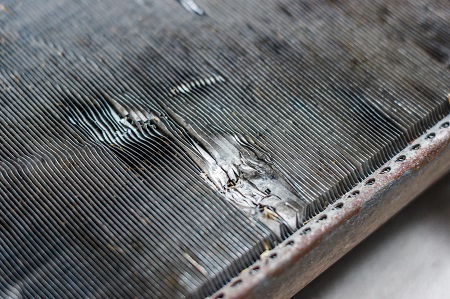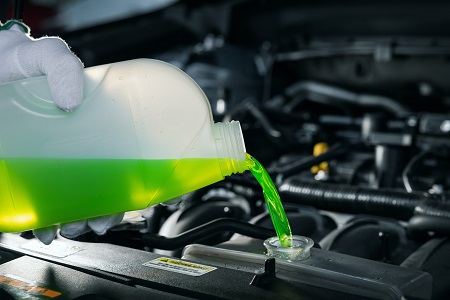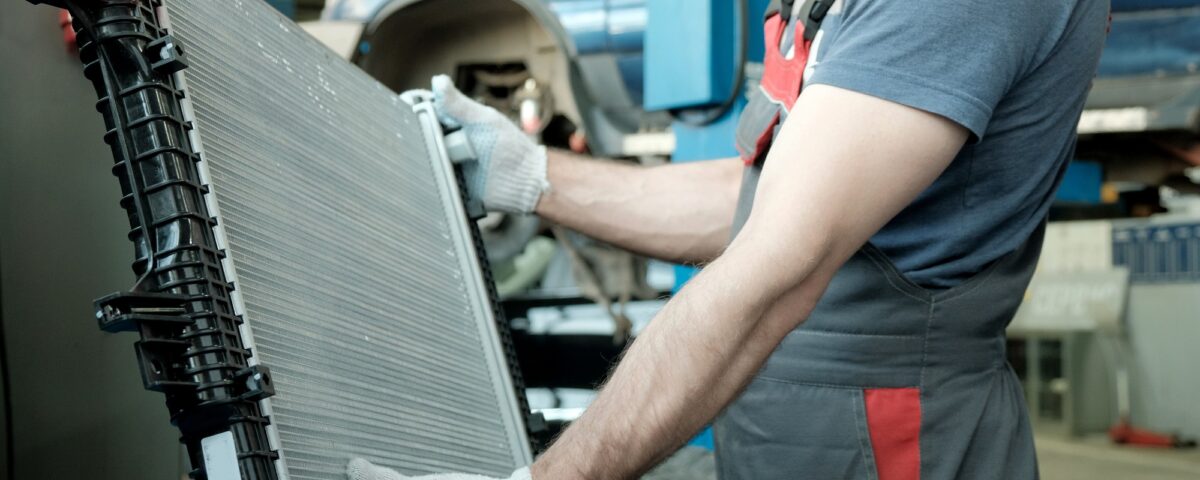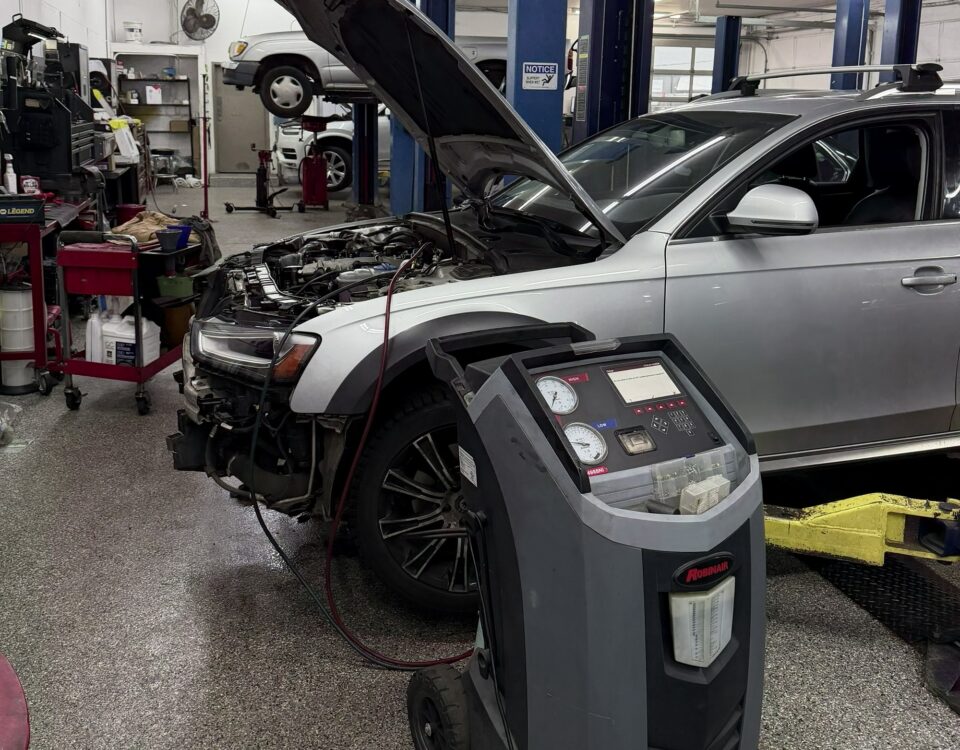
Signs Your Toyota Needs Immediate Auto Service
July 7, 2023
Signs You Need a Water Pump Replacement for Your Car
July 25, 2023Radiator repair and replacements are an important aspect of vehicle maintenance that ensures the optimal functioning of the cooling system. Understanding the signs that indicate the need for radiator repair can help prevent further complications and potentially costly repairs.
Recognizing these signs early on enables car owners to take prompt action, seeking professional assistance to address radiator problems effectively. Ultimately, this article serves as a valuable resource for individuals seeking to maintain the longevity and performance of their vehicles through timely radiator repairs.
The Temperature Gauge Is Going Up
When the temperature gauge on your vehicle’s dashboard begins to rise, it may indicate a potential need for radiator repair.
The temperature gauge is an important component of a vehicle’s cooling system that measures the temperature of the engine coolant. It is designed to provide an early warning sign of any engine cooling system issues.
If the temperature gauge starts to climb toward the red zone, it suggests that the engine is running hotter than normal, which can be a sign of a malfunctioning radiator. A faulty radiator can lead to inadequate cooling of the engine, causing it to overheat.
It is crucial to address this issue promptly to prevent further damage to the engine and ensure the vehicle’s optimal performance. Therefore, if you notice the temperature gauge rising, it is advisable to seek radiator repair to diagnose and fix any underlying issues.
Your Coolant Is Leaking
A clear indication of a potential radiator issue would be the presence of a steady stream of coolant seeping out from the engine compartment, resembling a glistening trail on the pavement. Coolant is a vital component that helps regulate the engine’s temperature; any leakage can disrupt this process.
Furthermore, coolant leaks can lead to engine overheating, which could cause severe damage if not addressed promptly. There are several possible causes for coolant leaks, such as a cracked radiator, a faulty hose, or a damaged water pump. Identifying the source of the leak is crucial, as it will determine the necessary repairs.
It is important to address coolant leaks promptly to prevent further damage to the radiator and ensure the proper functioning of the engine cooling system.
Your Radiator Has A Poor Flow Rate
If your radiator is becoming clogged, it will cause an abstraction of your coolant flow, poor circulation causes your coolant to not cool down as rapidly and will cause your engine to run hot.
Your Car’s Engine Is Overheating
One possible consequence of a coolant leak is the engine overheating, which can result in severe damage if not promptly addressed. When the coolant level drops due to a leak, the engine cannot regulate its temperature properly, leading to overheating. This can cause the engine to run at higher temperatures than it is designed for, potentially causing damage to various components.
Signs of an overheating engine include:
- Steam coming from the hood
- A strong smell of coolant
- Temperature gauge reaching above operating temperature
- Unusual engine noises or vibrations
- Warning lights
- A/C may shut off
If these symptoms occur, it is essential to address the issue immediately to prevent further damage. Failure to do so can result in costly repairs or even the need for engine replacement.
Your Radiator Fins Are Damaged

Damaged radiator fins can hinder the proper heat dissipation process, potentially leading to an increase in engine temperature and subsequent damage if not addressed promptly.
The radiator fins play a crucial role in cooling the engine by providing a large surface area for heat transfer. When the fins are damaged, either due to corrosion, physical impact, or debris buildup, their ability to efficiently dissipate heat is compromised.
This can result in the engine overheating, as the radiator cannot effectively remove the excess heat. As a consequence, the engine may experience reduced performance, increased wear and tear, and even permanent damage.
Hence, it is important to regularly inspect the radiator fins for any signs of damage and promptly seek radiator repair if necessary to ensure optimal engine cooling and prevent potential engine issues.
There Is Rust on Your Radiator
Corrosion in the radiator can impede the heat dissipation process, potentially compromising engine performance and longevity. Rust is a common form of corrosion that can develop in your radiator over time. If you notice rust in your radiator, it may indicate that there is an underlying issue that needs to be addressed.
Here are three signs of rust in your radiator that you should be aware of:
- Discoloration: Rust can cause the your coolant to appear discolored, with discoloration or small debris floating in your coolant.
- A film of brown or red on the inside of your reservoir.
- Leaks: Rust can cause small holes or cracks to develop in the radiator, leading to coolant leaks.
If you observe any of these signs, it is advisable to seek radiator repair to prevent further damage and ensure optimal engine performance.
Low Coolant Levels

Insufficient coolant levels can disrupt the cooling system’s ability to regulate engine temperature, potentially leading to overheating and engine damage. Low coolant levels can be an indication of radiator problems.
Coolant, also known as antifreeze, plays a crucial role in maintaining the engine’s temperature by absorbing and dissipating heat. When coolant levels are low, the radiator may not be able to effectively cool the engine, causing it to overheat.
There are several reasons why coolant levels may be low, including leaks in the radiator or hoses, a faulty radiator cap, or a blown head gasket. It is important to address low coolant levels promptly to prevent further damage to the engine and ensure the radiator functions properly.
Strange Noises Coming From Under Your Cars Hood
Unusual noises emanating from underneath the vehicle’s hood may indicate a potential issue that requires immediate attention, evoking concern and prompting a thorough investigation.
When it comes to radiator repair, strange noises can be a red flag. One common noise to be aware of is a hissing sound, which may suggest a coolant leak. This could happen if there is a crack or hole in the radiator, causing coolant to escape.
Another noise to listen for is a loud banging or knocking sound, which could indicate a problem with the radiator fan or a loose component.
Additionally, a whining or squealing noise might suggest a failing water pump or a worn-out belt.
It is crucial to address these strange noises promptly to prevent further damage and maintain the proper functioning of the vehicle’s radiator system.
Your Car Takes Awhile to Heat Up
When it comes to identifying the need for radiator repair, another potential indicator is when your car takes an extended period to heat up.
The radiator plays a crucial role in regulating the engine’s temperature, and if it is not functioning optimally, it may result in a longer warm-up time.
This delay in reaching the desired operating temperature can be attributed to several factors. One possibility is a malfunctioning thermostat that fails to open fully, restricting the flow of coolant.
Another potential cause could be a clogged radiator, hindering the circulation of coolant throughout the system.
Additionally, a leaking radiator may also contribute to this issue by reducing the amount of coolant available.
Therefore, if your car consistently takes an unusually long time to heat up, it is advisable to have your radiator inspected and potentially repaired.
Steve’s Imports Does Radiator Repair and Replacement
Maintaining a vehicle’s performance is crucial, and the radiator plays a significant role in ensuring it. However, it is inevitable that the radiator will eventually need repairs or replacement. Luckily, if you’re a Portland resident, Steve’s Imports has got you covered. We’ve been serving the community for over 45 years, and our expertise in radiator repair is unmatched. At Steve’s, we pride ourselves on providing honest and transparent services to our clients. Our team of dedicated professionals offers accurate diagnoses and low-pressure involvement, ensuring that we only perform repairs that your car truly needs.
So, before you rush to replace your radiator, take a deep breath and give us a call. Let us handle the repair work so your vehicle can get back on the road without any hitch.
Visit our About Us page for more information about our auto repair shop.


